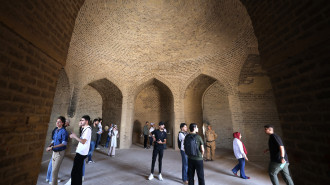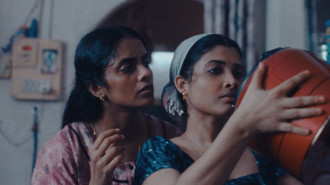Oh, Salaam!: Fighting for love after the Lebanese Civil War
Oh, Salaam! is a novella by Lebanese writer, journalist and film director Najwa Barakat, translated by Luke Leafgren.
Set in Lebanon in the aftermath of the country’s 15-year-long civil war, the story follows a myriad of characters, with the main protagonists being Luqman (a former bomb maker), Najeeb (a former sniper), the Albino (a former torturer), and Salaam (the Albino’s former fiancee).
Oh, Salaam! is a binding thread for the three men, and it is poetic that her name means peace, because the men are also bound in their disgust for the peace that followed the civil war.
"Oh, Salaam! is a challenging and unsettling post-war story that examines the depths that humanity can descend to when war is normalised for too long – along with bad governance, poor living conditions, unchecked greed and, indeed the — ever-present — aftermath of colonialism"
There are other minor but significant protagonists like Lurice (the Albino’s mother living with dementia; Saleem, Salaam’s young brother who is living with a disability as a result of the war; Marina, a (likely) trafficked Russian teenage sex worker, and Shireen, a privilege French-Lebanese archaeologist who Luqman meets after he (and Najeeb and Salaam) sets up a rat extermination business.
Barakat interweaves the lives of these characters to examine various isms that depict how humanity can be lost (and atrocities justified) when war and violence are normalised for too long so that when peace arrives, it feels like the enemy.
Because of this, Oh, Salaam! is not an easy read. Very early on in the story, readers can see this play out when Luqman heads to a festival. Barakat aptly portrays the normalcy of the people at this ‘festival’ — everyday people of “mixed ages, inclinations, religions, colours and associations”.
Vendors selling different items, photographers, reporters, Boy Scout troops and civil defence squads were all present. One vendor even tells Luqman that “everyone has been bored to death! We kill ourselves for festivals!”.
Later, readers learn that the ‘festival’ is the execution of two ‘heroes’ (likely put in quotes to denote sarcasm as the people to be executed are considered traitors). Once the ‘heroes’ are executed, the crowd goes ballistic and “cheered jubilantly and applauded”. This scene, along with Luqman’s violent and often misogynistic musings and reminisces, quickly prepared me for more depravity to come.
|
Luqman and his colleagues (Najeeb and the Albino) were underdogs before the war. Each was dissatisfied with his life and circumstances and nursed a desire (or greed?) for something grander. When the war came, they acquired power, riches, fame and sex, thanks to its violence – until peace came and everything went up in smoke.
The Albino lost his life; Luqman lives in a rat-infested house, unable to afford electricity; Najeeb becomes a small-time drug dealer who checks into an asylum to avoid prosecution when the police catch him. Barakat does not outrightly blame these men’s evil on their circumstances.
Still, she repeatedly points out how the presence of good governance, particularly after the war, may have reduced peoples’ nostalgia for the “good times” of war. As Luqman and Najeeb continue to wallow in poverty, their idea that war or violence is the only means to economic success also grows – this does not, of course, disregard their innate greed for power; it just adds more fuel.
Classism and colonial blues (attributing whiteness to wealth and prestige) also manifest repeatedly in this novella. A case in point is when the desire for wealth peaks and ultimately tips young Albino towards violence. His mother visits him in school, and her presence threatens his claims to be from a well-to-do home (and that his mother is, in fact, his maid).
Post-war, Luqman, becomes obsessed with making Shireen fall hopelessly in love with him because she is Parisian, and all things ‘white’ – or as close to whiteness as possible – will save him from the squalor of his country and bring him the wealth and prestige he desires.
In one of Luqman’s musings, he expresses how he thinks the French will welcome him with open arms, and he can even change his name to ‘Monsieur Patrick’. What a sight it would have been when he discovered how untrue this is! We cannot forget Najeeb, who senses that Salaam has access to Lurice’s inheritance as her carer and enters into a violent sexual relationship with the former to fulfil his desires.
I have saved Salaam for last because her character is likely the most pitiful of the main protagonists, though certainly not any likeable. Salaam nurses her greed for power, but because her society is patriarchal, she repackages it as a desire for marriage – preferably marriage to a powerful man. This repackaged desire guides her every decision in Oh, Salaam! She aptly describes her yearning when she compares herself to her brother, Saleem, saying:
“Wouldn’t it have been better if her features had shared the beauty and symmetry of Saleem’s? Wouldn’t it have been better if he had come in her place? If she had been the boy, he the girl? … And if Salaam had been a boy, she wouldn’t have been afraid of the war or felt cowardice. She would have become the leader of the neighbourhood. Saleem wouldn’t have gone crazy, and she wouldn’t have been described as an ugly spinster.”
Unfortunately, because Salaam does not fit the beauty standards, she cannot easily find a man to marry to fulfil her desire. Then the war comes and Albino shows up, so she does everything to endear herself to him – even attacking and shaming her brother for “not being man enough” to condone the Albino’s tortures.
After the Albino proposes to her, Salaam gleefully notes that “she found her place … she had a say in things and the women in the neighbourhood started trying to please her”. Then the war ended and took the Albino and the ‘almost-reality’ of her marriage. So, like her fellow main protagonists, Salaam also goes to many lengths to achieve her greed for power — only, she has to shoulder the weight of patriarchy while at it. A pitiful character indeed!
I also appreciate how Barakat incorporates the reality of being disabled during or after wars through Saleem – especially in situations where caregivers are preoccupied or consumed with their survival or greed. Perhaps his character is the only truly innocent in this novella.
Oh, Salaam! is a challenging and unsettling post-war story that examines the depths that humanity can descend to when war is normalised for too long – along with bad governance, poor living conditions, unchecked greed and, indeed the — ever-present — aftermath of colonialism.
Aisha Yusuff is a book reviewer with a focus on African and Muslim literature. Her work can be found on @thatothernigeriangirl as well as in digital magazines like Rewrite London
Follow her on Twitter: @allthingsaeesha

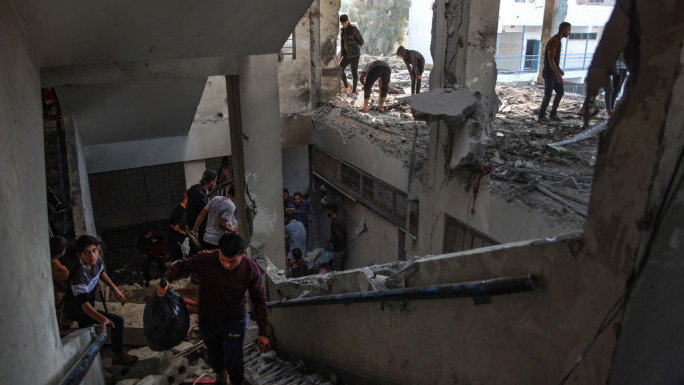
![President Pezeshkian has denounced Israel's attacks on Lebanon [Getty]](/sites/default/files/styles/image_684x385/public/2173482924.jpeg?h=a5f2f23a&itok=q3evVtko)
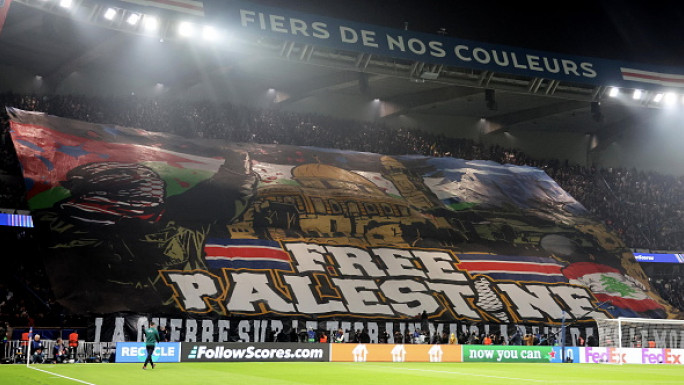
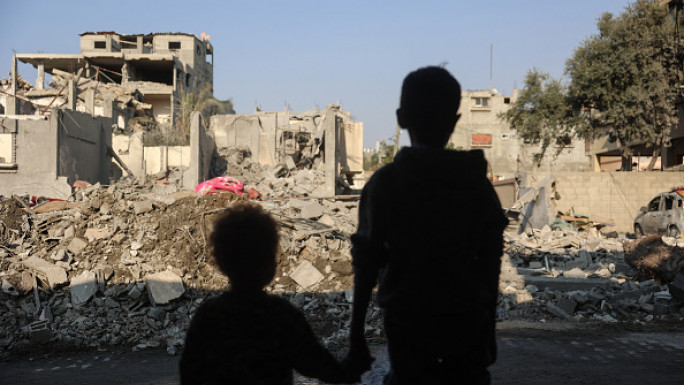

 Follow the Middle East's top stories in English at The New Arab on Google News
Follow the Middle East's top stories in English at The New Arab on Google News

